IACC Full Committee Meeting
 Full Meeting Video
Full Meeting Video
 Photo Gallery
Photo Gallery
 Announcement
Announcement
| Topic | Topic Description |
|---|---|
| Date: | Wednesday, April 17, 2019 |
| Time: | 9:00 a.m. to 5:00 p.m. Eastern |
| Place: | National Institute of Mental Health (NIMH) 6001 Executive Boulevard, Neuroscience Center (NSC) Conference Rooms C and D Rockville, MD 20850 |
| Metro Stop: | White Flint Metro Station (Red Line) |
| Registration: | Pre-registration is recommended to expedite check-in. Seating in the meeting room is limited to room capacity and on a first come, first served basis. Onsite registration will also be available. |
| Remote Access: | Conference Call: Dial: 800-369-3337 Access code: 9975399 Webcast: https://videocast.nih.gov/summary.asp?live=31473&bhcp=1 Members of the public who participate using the conference call phone number will be in listen-only mode. If you experience technical problems with the webcast or conference call, please call 240-668-0302 or e-mail IACCPublicInquiries@mail.nih.gov. |
| Cost: | The meeting is free and open to the public. |
| Deadlines: | Notification of intent to present oral comments: Thursday, April 4, 2019 by 5:00 p.m. ET Submission of written/electronic statement for oral comments: Tuesday, April 9, 2019 by 5:00 p.m. ET Submission of written comments: Tuesday, April 9, 2019 by 5:00 p.m. ET Webcast live feedback comments: No pre-registration required. For more information, visit the Live Feedback page. Please note: Written public comments and statements accompanying oral public comments should be sent to IACCPublicInquiries@mail.nih.gov. For IACC Public Comment guidelines please see:http://iacc.hhs.gov/meetings/public-comments/guidelines/ |
| Public Comments: | Any member of the public interested in presenting oral comments to the Committee must notify the Contact Person listed on this notice by 5:00 p.m. ET on Thursday, April 4, 2019 with their request to present oral comments at the meeting, and a written/electronic copy of the oral presentation/statement must be submitted by 5:00 p.m. ET on Tuesday, April 9, 2019.
Expand for more 
A limited number of slots for oral comments are available, and in order to ensure that as many different individuals are able to present throughout the year as possible, any given individual only will be permitted to present oral comments once per calendar year (2019). Only one representative of an organization will be allowed to present oral comments in any given meeting; other representatives of the same group may provide written comments. If the oral comment session is full, individuals who could not be accommodated are welcome to provide written comments instead. Comments to be read or presented in the meeting will be assigned a 3-5 minute time slot depending on the number of comments, but a longer version may be submitted in writing for the record. Commenters going beyond their allotted time in the meeting may be asked to conclude immediately in order to allow other comments and presentations to proceed on schedule.
Any interested person may submit written public comments to the IACC prior to the meeting by e-mailing the comments to IACCPublicInquiries@mail.nih.gov or by submitting comments at the link: https://iacc.hhs.gov/meetings/public-comments/submit/index.jsp by 5:00 p.m. ET on Tuesday, April 9, 2019. The comments should include the name, address, telephone number, and when applicable, the business or professional affiliation of the interested person. NIMH anticipates written public comments received by 5:00 p.m. ET on Tuesday, April 9, 2019, will be presented to the Committee prior to the meeting for the Committee’s consideration. Any written comments received after the 5:00 p.m. ET, April 9, 2019 deadline through April 16, 2019, will be provided to the Committee either before or after the meeting, depending on the volume of comments received and the time required to process them in accordance with privacy regulations and other applicable Federal policies. All written public comments and oral public comment statements received by the deadlines for both oral and written public comments will be provided to the IACC for their consideration and will become part of the public record. Attachments of copyrighted publications are not permitted, but web links or citations for any copyrighted works cited may be provided. Individuals may also submit public comments to the IACC via a Live Feedback Form accessible from the webcast page on the day of the meeting from 9:00 AM ET to 11:00 AM ET. No pre-registration required. The link will be accessible on the NIH Videocast website at https://videocast.nih.gov/summary.asp?live=31473 and instructions are available on the IACC website: https://iacc.hhs.gov/meetings/iacc-meetings/live-feedback.shtml. This format is best suited for brief questions and comments for the committee. Submissions will be provided to the IACC and will become a part of the public record. Core Values:
In the 2016-2017 IACC Strategic Plan, the IACC listed the “Spirit of Collaboration” as one of its core values, stating that, “We will treat others with respect, listen with open minds to the diverse views of people on the autism spectrum and their families, thoughtfully consider community input, and foster discussions where participants can comfortably where participants can comfortably offer opposing opinions.” In keeping with this core value, the IACC and the NIMH Office of Autism Research Coordination (OARC) ask that members of the public who provide public comments or participate in meetings of the IACC also seek to treat others with respect and consideration in their communications and actions, even when discussing issues of genuine concern or disagreement. |
| Disability Accommodations: | All IACC Full Meetings provide Closed Captioning through the NIH videocast website. Remote CART is provided through a web application and will be available at all meetings; the application can be used on a laptop computer or mobile device. For details please inquire with the Contact Person listed on the notice. Individuals whose full participation in the meeting will require special accommodations (e.g., sign language, or interpreting services, etc.) must submit a request to the Contact Person listed on the notice at least seven (7) business days prior to the meeting. Such requests should include a detailed description of the accommodation needed and a way for the IACC to contact the requester if more information is needed to fill the request. Special requests should be made as early as possible; last minute requests may be made but may not be possible to accommodate. A quiet room will also be made available. |
| Security: | Visitors will be asked to sign in and show one form of identification (for example, a government-issued photo ID, driver’s license, or passport) at the meeting registration desk during the check-in process. Pre-registration is recommended. Seating will be limited to the room capacity and seats will be on a first come, first served basis, with expedited check-in for those who are pre-registered. |
| Contact Person: | Ms. Angelice Mitrakas Office of Autism Research Coordination National Institute of Mental Health, NIH 6001 Executive Boulevard, NSC, Room 6183A Rockville, Maryland 20852 Phone: 301-435-9269 E-mail: IACCPublicInquiries@mail.nih.gov |
Back to Top
 Agenda
Agenda
| Time | Event | ||||||||||||
|---|---|---|---|---|---|---|---|---|---|---|---|---|---|
| 9:00 a.m. | |||||||||||||
| 9:10 |
Expect More: An Autism Adventure
|
||||||||||||
| 9:45 |
CDC Autism Data Visualization Platform
|
||||||||||||
| 10:30 |
Morning Break
|
||||||||||||
| 10:40 |
Update from the Federal Communications Commission
|
||||||||||||
| 11:25 | |||||||||||||
| 12:00 p.m. |
Lunch
|
||||||||||||
| 1:00 | |||||||||||||
| 2:00 |
Panel Presentation: Disability Employment
|
||||||||||||
| 3:55 |
Afternoon Break
|
||||||||||||
| 4:10 |
Ann Wagner, Ph.D. HHS National Autism Coordinator and Chief, Biomarker and Intervention Development for Childhood-Onset, Mental Disorders Branch, Division of Translational Research, National Institute of Mental Health |
||||||||||||
| 4:15 | |||||||||||||
| 4:50 |
Round Robin
|
||||||||||||
| 5:00 |
Closing Remarks and Adjournment
|
Schedule is subject to change. Meeting may end prior to or later than 5:00 PM depending on the needs of the committee. For more information on upcoming events, please see https://iacc.hhs.gov/meetings/
Next IACC Full Committee Meeting:
- Wednesday, July 24, 2019 – Neuroscience Center, Rockville MD
Back to Top
- April Meeting Minutes (PDF 536 KB)
Back to Top
 Speakers
Speakers
The Honorable Mike Lake, P.C., M.P.
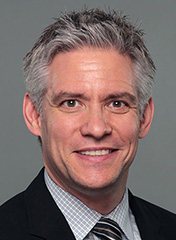
The Honorable Mike Lake is the Member of the Canadian Parliament representing Edmonton-Wetaskiwin, and was first elected in 2006. He was appointed Parliamentary Secretary to the Minister of Industry in 2008. In 2012 Mr. Lake was sworn into the Queen's Privy Council, after being asked by Prime Minister Stephen Harper to serve on the Priorities and Planning Sub-Committee on Government Administration. He also currently serves as the Conservative Party Critic for Global Maternal, Newborn, and Child Health. Prior to entering federal politics, Mr. Lake worked for 10 years with the Edmonton Oilers Hockey Club where he served as National Accounts Manager, Director of Ticket Sales and Group Sales Manager. He holds a Bachelor of Commerce (with distinction) from the University of Alberta and has two children, a son Jaden, and daughter Jenae. The Lake family has been active supporters of autism organizations, families and individuals across the country, and around the world, while sharing their story of life with Jaden, who is on the autism spectrum.
Stuart K. Shapira, M.D., Ph.D.
Associate Director for Science and Chief Medical Officer in the National Center on Birth Defects and Developmental Disabilities (NCBDDD), Centers for Disease Control and Prevention (CDC)
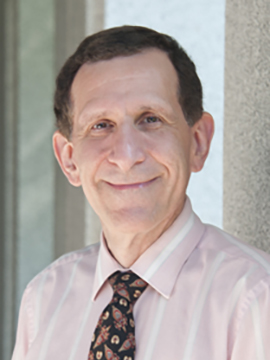
Dr. Stuart K. Shapira is the Associate Director for Science and Chief Medical Officer in the National Center on Birth Defects and Developmental Disabilities (NCBDDD) at the Centers for Disease Control and Prevention (CDC) and a member of the Interagency Autism Coordinating Committee (IACC). Previously, Dr. Shapira served as a medical officer on the Pediatric Genetics Team in NCBDDD. His research activities included dysmorphology of autism, birth defects epidemiology, and newborn screening. Prior to joining the NCBDD in 2005, Dr. Shapira practiced clinical genetics and metabolic genetics at Baylor College of Medicine in Houston and at the University of Texas Health Science Center in San Antonio. He currently serves as CDC liaison to the Committee on Genetics for the American Academy of Pediatrics, as chairman of the Dysmorphology Workgroup for the Centers for Autism and Developmental Disabilities Research and Epidemiology, and as NCBDDD liaison of the Interagency Collaborative to Advance Research in Epilepsy. Dr. Shapira received his Ph.D. in Genetics and his M.D. from the University of Chicago. He completed a residency in Pediatrics and a clinical fellowship in Genetics and Metabolism at Boston Children’s Hospital. He also completed dual research fellowships in Genetics and Metabolism, and in Allergy and Immunology at Harvard Medical School. Dr. Shapira is board-certified in Clinical Genetics, Biochemical Genetics, and Molecular Genetics.
Theodore Marcus, J.D.
Deputy Chief, Disability Rights Office, Consumer and Governmental Affairs Bureau, Federal Communications Commission
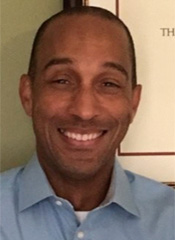
Mr. Theodore Marcus is Deputy Chief to the Chief of the Disability Rights Office (DRO), where he manages and directs the programs and activities of the Disability Rights Office. He assists the Chief, DRO in determining policy, short and long-range strategic planning, setting overall directions and procedures, and in directing the Staff. Previously, he was Special Counsel for Network Security Policy development in the FCC Wireless Telecom Bureau's front office. Mr. Marcus also served the FCC as the Deputy Division Chief of its Public Safety and Homeland Security Bureau's Cybersecurity and Communications Reliability Division. Prior to joining the federal government, Mr. Marcus practiced law in the private sector, with stints at AT&T/BellSouth, ExxonMobil, and the Washington, D.C. law firm of Akin, Gump, Strauss, Hauer & Feld. Mr. Marcus is also a former federal prosecutor with the U.S. Attorney’s Office, Washington, D.C. Mr. Marcus obtained his J.D. from the University of Texas at Austin, and his undergraduate degree in International Relations from the University of Virginia.
Julie Lounds Taylor, Ph.D.
Associate Professor of Pediatrics, Vanderbilt Kennedy Center Investigator, Vanderbilt University Medical Center
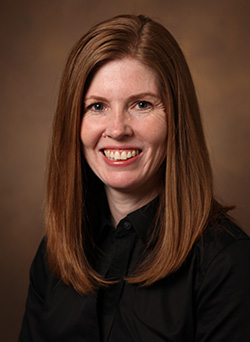
Dr. Julie Lounds Taylor joined the IACC as a public member in 2015. Dr. Taylor is an Associate Professor of Pediatrics at Vanderbilt University Medical Center and an Investigator at the Vanderbilt Kennedy Center, a Eunice Kennedy Shriver Intellectual and Developmental Disabilities Research Center (IDDDRC). Her current research interests include factors that promote a positive transition to adulthood for individuals with autism spectrum disorders and their families, as well as the impact of having a sibling with an intellectual or developmental disability. She has published research on a variety of autism and disability services-related issues, including sex and gender differences, peer victimization, transition planning, secondary education and vocational training, employment, and daily life skills for people on the autism spectrum. Dr. Taylor earned her Ph.D. in developmental psychology at the University of Notre Dame and conducted her postdoctoral research at the Waisman Center, Lifespan Family Research Laboratory at the University of Wisconsin-Madison.
Paul Wehman, Ph.D.
Director, Rehabilitation Research and Training Center, Virginia Commonwealth University, Professor, Physical Medicine and Rehabilitation, Virginia Commonwealth University
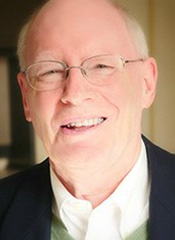
Dr. Paul Wehman is the Director of the Rehabilitation Research and Training Center and the Founding Editor of the Journal of Vocational Rehabilitation. He is known for his pioneering work in the development of supported employment at VCU in 1980, a rehabilitation intervention strategy which has facilitated millions of persons with neurodevelopmental disabilities, brain injury, mental illness and spinal cord injury in countries all over the world to gain competitive employment for the first time. Dr. Wehman holds his primary position as a Professor in Physical Medicine and Rehabilitation at the Virginia Commonwealth University with joint position in the Department of Rehabilitation Counseling and the Department of Special Education. Dr. Wehman serves as Director of the VCU Rehabilitation Research and Training Center on Employment and Director of the VCU Autism Center for Excellence (ACE). He has researched, written, instructed and presented extensively on issues related to transition from school to adulthood and special education as it relates for young adulthood. Dr. Wehman received his Ph.D. in Behavioral Disabilities/Rehabilitation Psychology from the University of Wisconsin.
Erik Carter, Ph.D.
Cornelius Vanderbilt Professor, Department of Special Education, Vanderbilt University
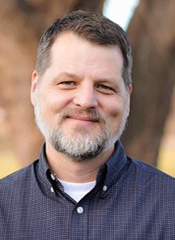
Dr. Erik Carter is Cornelius Vanderbilt Professor of Special Education at Vanderbilt University. His research and teaching focuses on evidence-based strategies for supporting access to the general curriculum and promoting valued roles in school, work, community, and congregational settings for children and adults with intellectual disability, autism, and multiple disabilities. Prior to receiving his doctorate, Dr. Carter worked as a high school teacher and transition specialist. He has published widely in the areas of educational and transition services for children and youth with disabilities, including nearly 200 articles and chapters as well as 6 books. He was the recipient of the Distinguished Early Career Research Award from the Council for Exceptional Children, the Early Career Award from the American Association for Intellectual and Developmental Disabilities, the Patricia L. Sitlington Research in Transition Award from the Division on Career Development and Transition, the Research Award from the Division on Autism and Developmental Disabilities, and the Young Professional Award from the Association of University Centers on Disabilities. He is an active member of the Vanderbilt Kennedy Center and invests in collaborative partnerships across the university, state, and country.
Hala Annabi Ph.D.
Associate Professor, Information School, University of Washington
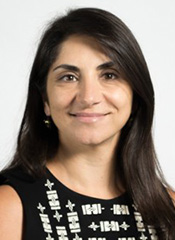
Dr. Hala Annabi is an associate professor at the Information School at the University of Washington. Her research focuses on creating and maintaining inclusive learning organizations. Dr. Annabi investigates diversity and inclusion interventions in the technology industry aimed at retaining and advancing women, as well as recruiting, retaining, and advancing autistic technology professionals. She recently published the "Autism @ Work Playbook![]() ," a resource for employers who are interested in developing autism hiring programs. Dr. Annabi is the Primary Investigator and Director of a program, PREP for IT, that helps prepare young autistic students obtain information technology jobs and succeed in their work place. The program seeks to create a workforce preparation program for students at the University of Washington. She and her colleagues created a curriculum that includes workshops, mentoring, job shadowing, company visits, and coaching. She received her Ph.D. in Information Science and Technology from Syracuse University and her MBA from Le Moyne College.
," a resource for employers who are interested in developing autism hiring programs. Dr. Annabi is the Primary Investigator and Director of a program, PREP for IT, that helps prepare young autistic students obtain information technology jobs and succeed in their work place. The program seeks to create a workforce preparation program for students at the University of Washington. She and her colleagues created a curriculum that includes workshops, mentoring, job shadowing, company visits, and coaching. She received her Ph.D. in Information Science and Technology from Syracuse University and her MBA from Le Moyne College.
Back to Top
 Materials
Materials
- Cognitive Disabilities Webpage
- Summit on Telecommunication Needs of People with Cognitive Disabilities
- White Paper: Individuals with Cognitive Disabilities: Barriers to and Solutions for Accessible Information and Communication Technologies (PDF 301 KB)
- DOL Office of Disability Employment Policy
- Annabi H, Locke J. A theoretical framework for investigating the context for creating employment success in information technology for individuals with autism. Journal of Management and Organization. 2019 Mar 5. https://doi.org/10.1017/jmo.2018.79
 .
. - Carter EW, Bendetson S, Guiden CH. Family Perspectives on the Appeals of and Alternatives to Sheltered Employment for Individuals with Severe Disabilities, Research and Practice for Persons with Severe Disabilities. 2018 June 20. 43(3), 145-164. https://doi.org/10.1177%2F1540796918778293.

- Carter EW, Blustein CL, Bumble JL, Harvey S, Henderson LM, McMillan ED. Engaging Communities in Identifying Local Strategies for Expanding Integrated Employment During and After High School. Am J Intellect Dev Disabil. 2016 Sep;121(5):398-418. doi: 10.1352/1944-7558-121.5.398. PMID: 27611351. https://www.ncbi.nlm.nih.gov/pubmed/27611351.
- Gilson CB, Carter EW. Video-Based Instruction to Promote Employment-Related Social Behaviors for High School Students With Intellectual Disability. Inclusion. 2018 September. 6(3), 175-193. https://doi.org/10.1352/2326-6988-6.3.175.

- Gilson CB, Carter EW. Promoting Social Interactions and Job Independence for College Students with Autism or Intellectual Disability: A Pilot Study. J Autism Dev Disord. 2016 Nov;46(11):3583-3596. PMID: 27573857. https://www.ncbi.nlm.nih.gov/pubmed/27573857.
- Lee GK, Chun J, Hama H, Carter EW. Review of Transition and Vocational Interventions for Youth and Adults with Autism Spectrum Disorder. Review Journal of Autism and Developmental Disorders. 2018 May 10. 5, 268-284. https://doi.org/10.1007/s40489-018-0138-4.

- Mamun AA, Carter EW, Fraker TM, Timmins LL. Impact of early work experiences on subsequent paid employment for young adults with disabilities. Career Development and Transition for Exceptional Individuals. 2017 Aug 16. 41(4), 212-222. https://doi.org/10.1177/2165143417726302.

- Schall CM, Wehman P, Brooke V, Graham C, McDonough J, Brooke A, Ham W, Rounds R, Lau S, Allen J. Employment Interventions for Individuals with ASD: The Relative Efficacy of Supported Employment With or Without Prior Project SEARCH Training. J Autism Dev Disord. 2015 Dec;45(12):3990-4001. doi: 10.1007/s10803-015-2426-5. PMID: 25791125. https://www.ncbi.nlm.nih.gov/pubmed/25791125.
- Scott M, Milbourn B, Falkmer M, Black M, Bӧlte S, Halladay A, Lerner M, Taylor JL, Girdler S. Factors impacting employment for people with autism spectrum disorder: A scoping review. Autism. 2018 Aug 3:1362361318787789. doi: 10.1177/1362361318787789. [PMID: 30073870]
- Taylor JL, Smith DaWalt L, Marvin AR, Law JK, Lipkin P. Sex differences in employment and supports for adults with autism spectrum disorder. Autism. 2019 Feb 7:1362361319827417. doi: 10.1177/1362361319827417. [PMID: 30729799].
- Wehman P, Schall C, McDonough J, Sima A, Brooke A, Ham W, Whittenburg H, Brooke V, Avellone L, Riehle E. Competitive Employment for Transition-Aged Youth with Significant Impact from Autism: A Multi-site Randomized Clinical Trial. J Autism Dev Disord. 2019 Mar 1. doi: 10.1007/s10803-019-03940-2. PMID: 30825082 https://www.ncbi.nlm.nih.gov/pubmed/30825082.
- Wehman P, Schall CM, McDonough J, Graham C, Brooke V, Riehle JE, Brooke A, Ham W, Lau S, Allen J, Avellone L. Effects of an employer-based intervention on employment outcomes for youth with significant support needs due to autism. Autism. 2017 Apr;21(3):276-290. doi: 10.1177/1362361316635826. Epub 2016 Jul 9. PMID: 27154907 https://www.ncbi.nlm.nih.gov/pubmed/27154907.
- Wehman P, Brooke V, Brooke AM, Ham W, Schall C, McDonough J, Lau S, Seward H, Avellone L. Employment for adults with autism spectrum disorders: A retrospective review of a customized employment approach. Res Dev Disabil. 2016 Jun-Jul;53-54:61-72. doi: 10.1016/j.ridd.2016.01.015. Epub 2016 Feb 6. PMID: 26855048 https://www.ncbi.nlm.nih.gov/pubmed/26855048.
- Commentary (PDF 194 KB)
- Abstract
- Nominations, January – April 2019 (PDF 244 KB)
- 2018 Update (Draft) (PDF 1 MB)
Back to Top
 Slides
Slides
- IACC Meeting Full Slide Set (PDF - 400 MB)
Back to Top
 Public Comments
Public Comments
- Oral Public Comments (PDF – 237 KB)
- Written Public Comments (PDF – 1 MB)
- Live Feedback Comments (PDF – 112 KB)
Back to Top
- Meeting Transcript (PDF – 547 KB)
Back to Top











